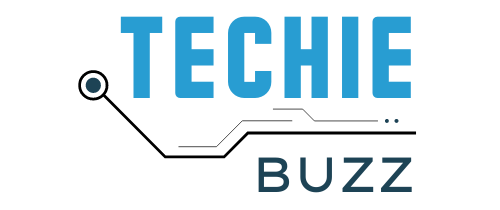The digital mortgage revolution has significantly transformed the landscape of home financing by harnessing technology to streamline the mortgage application, approval, and disbursement process. Traditionally, obtaining a homeowner’s loan was synonymous with cumbersome procedures, excessive paperwork, and time-consuming appointments. However, with the onset of digital innovations, these inconveniences are swiftly becoming remnants of the past.
Historically, mortgage processing was marked by inefficiencies and delays, resulting in suboptimal experiences for both lenders and borrowers. But the introduction of technology in the mortgage sector has acted as a catalyst, spurring significant changes and bringing forth innovations like online applications, automated underwriting, and e-signatures, all crucial in reshaping interactions between lenders and borrowers. These technological advancements ensure efficiency, accuracy, transparency, and improved user experiences, thereby making them indispensable in the modern evolution of home financing solutions.
Benefits of Digital Mortgages
Digital mortgages, with their streamlined application processes, are enabling borrowers to effortlessly submit necessary documents online, thus reducing the complexities associated with conventional methods. This increased ease and convenience in the application process are fueling a growing preference for digital homeowner’s loan solutions among borrowers, making the physically intensive and paperwork-laden processes obsolete.
Automation and AI in digital mortgages play a pivotal role, leading to expedited approval processes by swiftly assessing applicants’ creditworthiness and verifying documents, thus ensuring faster disbursements. These advancements are redefining the norms of home financing, offering unparalleled benefits by minimizing errors and providing a seamless, hassle-free experience to applicants, making digital mortgages a cornerstone in the contemporary homeowner’s loan industry and you can seek more info about it here at https://www.evensapir.co.il/.
The Rise of Online Mortgage Lenders

The ascent of online mortgage lenders has been a significant development in the home financing sector, with prominent lenders leveraging cutting-edge technologies to offer innovative mortgage solutions. These online lenders, in comparison to their traditional counterparts, emphasize efficiency, convenience, and user-friendly experiences, making them increasingly preferred by modern borrowers.
The role of technology in online mortgage lending is paramount, enabling lenders to offer a plethora of homeowner’s loan solutions, each tailored to meet the unique needs and preferences of individual borrowers. The growing preference for online mortgage lenders underscores the shifting dynamics in the mortgage industry, reflecting the increased demand for digital, customer-centric solutions in home financing.
Automated Underwriting and Risk Assessment
Automated underwriting systems, fueled by Artificial Intelligence and data analytics, are revolutionizing risk assessment in the mortgage industry. These systems enable swift, accurate evaluations of applicants’ financial standings, thereby reducing the incidences of mortgage fraud and defaults. The integration of technology in underwriting processes is leading to enhanced risk mitigation, allowing lenders to make more informed, data-driven decisions.
The emphasis on reducing fraud and ensuring robust risk assessment mechanisms underscores the transformative impact of automation and AI in shaping the future trajectories of the homeowner’s loan industry, making them integral components in fostering secure, transparent lending ecosystems.
E-Signatures and Paperless Transactions

E-signatures play a pivotal role in actualizing digital mortgages by facilitating secure, legally compliant paperless transactions. The move towards paperless transactions is not merely about environmental conservation; it is about enhancing the efficiency and accuracy of mortgage transactions.
It provides borrowers and lenders with a secure platform for executing contracts, thereby reducing the transaction times significantly. The inclusion of e-signatures is a testament to the legal and security considerations pivotal in fostering trust and compliance in digital transactions, making them an essential feature in modern homeowner’s loan dealings.
Blockchain and Mortgage Records
Blockchain technology is making substantial inroads in the mortgage industry by providing a secure, transparent platform for recording mortgage transactions. The decentralized nature of blockchain ensures enhanced security, reducing the risk of data manipulation and fraud. This technology is pivotal in fostering transparency and trust between borrowers and lenders, thus contributing significantly to the evolving landscape of digital mortgages.
The prospective applications of blockchain in homeowner’s loan transactions are vast, emphasizing its potential to be a transformative force in ensuring security and transparency in the mortgage industry.
AI-Powered Mortgage Chatbots

AI-powered chatbots are increasingly becoming the face of customer service in the digital mortgage landscape. These chatbots are enhancing communication and accessibility, providing real-time assistance and information to users. They play a crucial role in addressing customer queries, simplifying mortgage-related complexities, and offering personalized advice, making them indispensable in fostering enriched borrower experiences.
The integration of AI in customer service through chatbots exemplifies the relentless pursuit of enhanced communication and accessibility in the homeowner’s loan industry, emphasizing their significance in shaping borrower interactions and experiences.
Big Data and Personalized Mortgage Offers
Big data is a key driver in tailoring mortgage offers to individual needs, thus redefining personalized lending. The utilization of data analytics enables lenders to assess individual financial standings, preferences, and needs, allowing for the crafting of customized homeowner’s loan solutions. This personalization is crucial in enhancing borrower satisfaction and fostering long-term relationships between lenders and borrowers.
However, with the increasing reliance on data, privacy concerns and regulations are becoming paramount, highlighting the need for robust data protection mechanisms to ensure the privacy and security of borrower information.
Mobile Apps for Mortgage Management

Mobile apps dedicated to mortgage management are transforming the borrower experience by offering a range of features and functionalities. These apps are enhancing borrower engagement by providing real-time updates, payment trackers, and interactive mortgage calculators, making them a vital tool in modern home financing.
The proliferation of homeowner’s loan management apps underscores the ongoing shift towards digital solutions in the mortgage industry, highlighting their role in enhancing borrower experiences and interactions in the evolving digital homeowner’s loan ecosystem.
Cybersecurity in Digital Mortgages
Cybersecurity is of paramount importance in protecting sensitive data within digital mortgages. The homeowner’s loan industry, with its extensive reliance on personal and financial data, is susceptible to a myriad of cybersecurity threats, making the implementation of best practices crucial in safeguarding information. The emphasis on cybersecurity is a reflection of the industry’s commitment to ensuring the integrity and confidentiality of borrower information, demonstrating its role in building trust and resilience in the evolving digital homeowner’s loan landscape.
Regulatory Changes and Compliance

The evolving regulatory landscape is adapting to the innovations brought about by digital mortgages. Regulators are formulating new compliance frameworks to address the unique challenges posed by digital mortgage solutions.
The emphasis on compliance and regulatory adaptations is crucial in ensuring the lawful, ethical operation of digital mortgage platforms, making them indispensable in shaping the future of homeowner’s loan industry regulations. These regulatory changes are fostering a balanced, compliant ecosystem, ensuring that the transformative impact of digital mortgages is aligned with legal and ethical standards.
Future Trends in Digital Mortgages
The future of digital mortgages is poised for continual evolution, with emerging technologies promising to reshape home financing. Predictions for future trends include advancements in AI, blockchain, and data analytics, all contributing to the refinement of digital homeowner’s loan solutions.
These emerging technologies are expected to address potential challenges and create novel opportunities, emphasizing their role in shaping the trajectories of the digital homeowner’s loan industry. The exploration of future trends is integral in understanding the transformative potential of technology in redefining home financing, offering insights into the possibilities and challenges that lie ahead.
